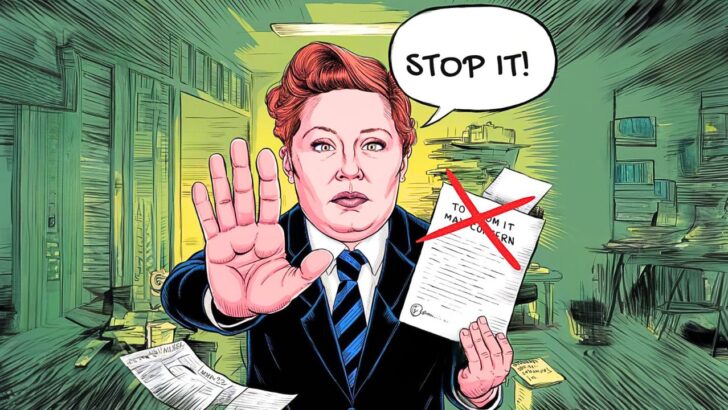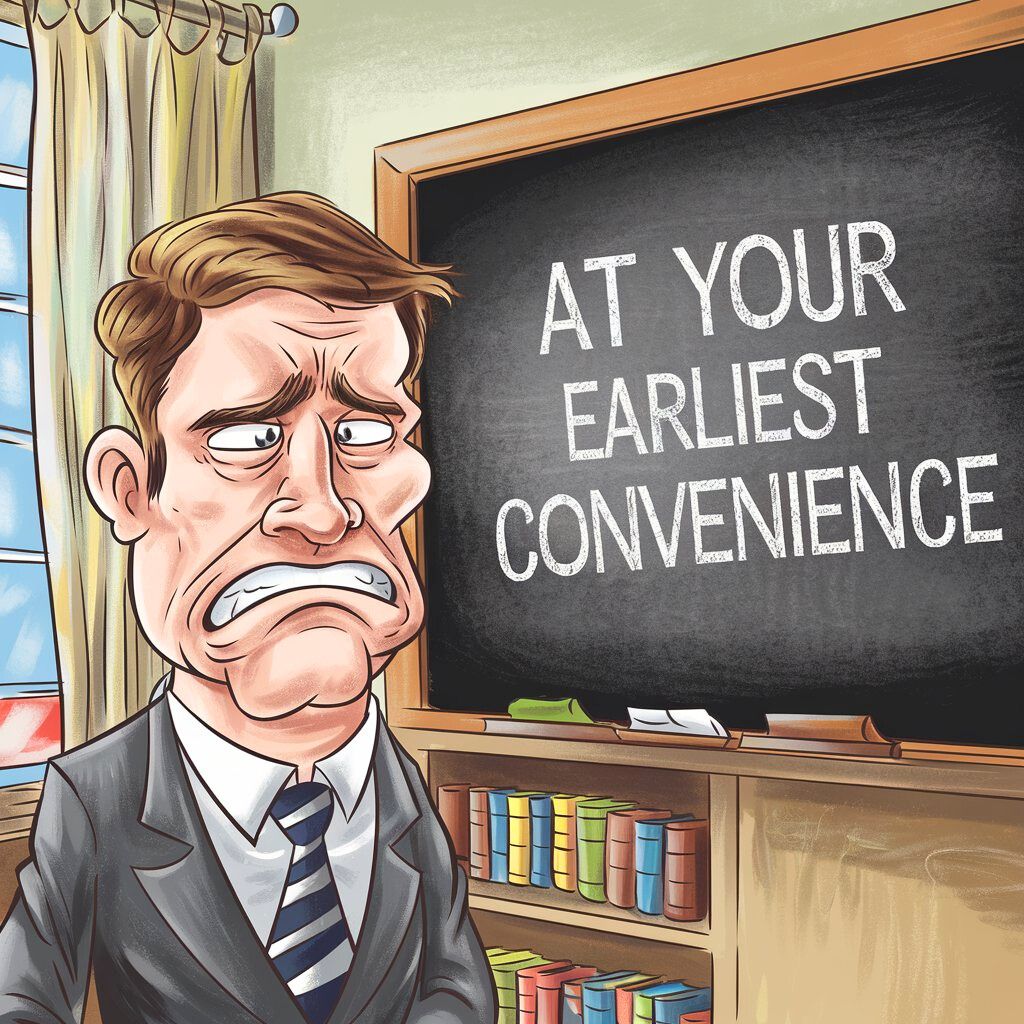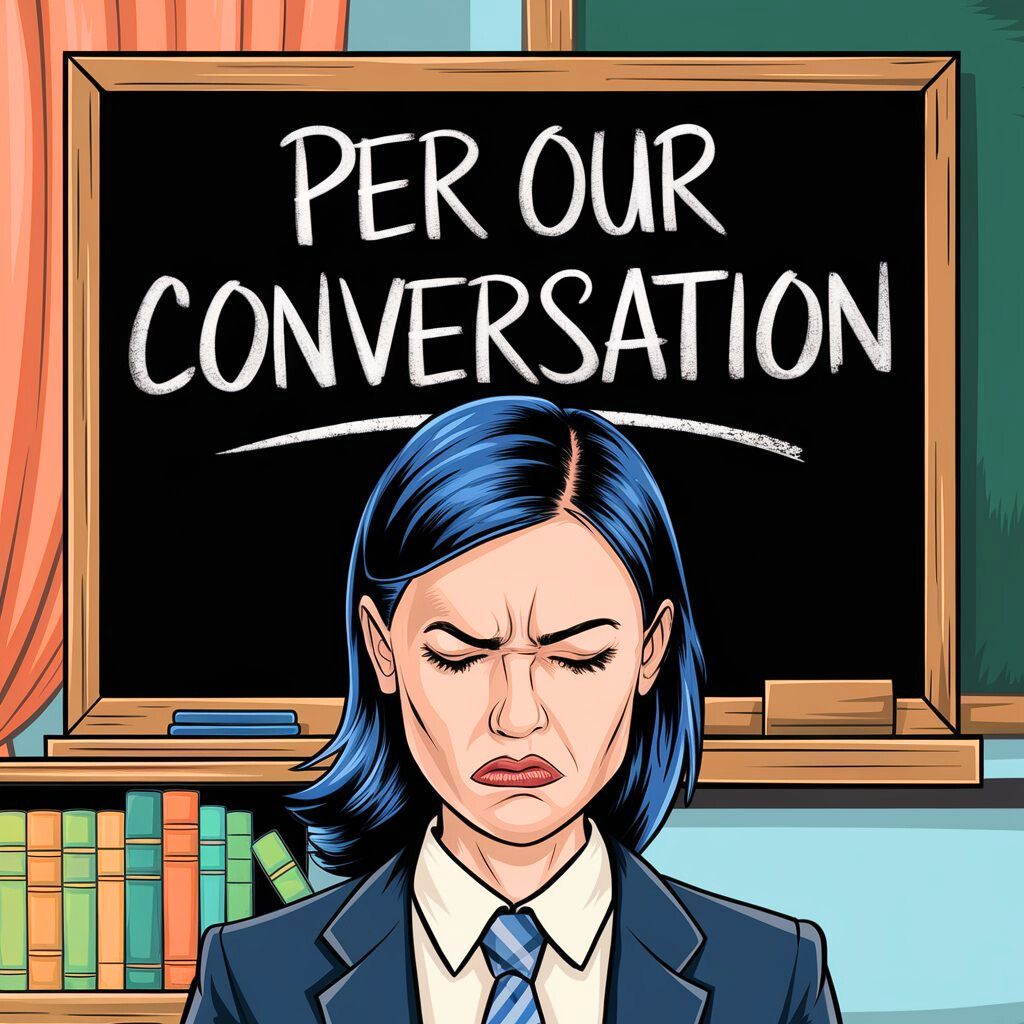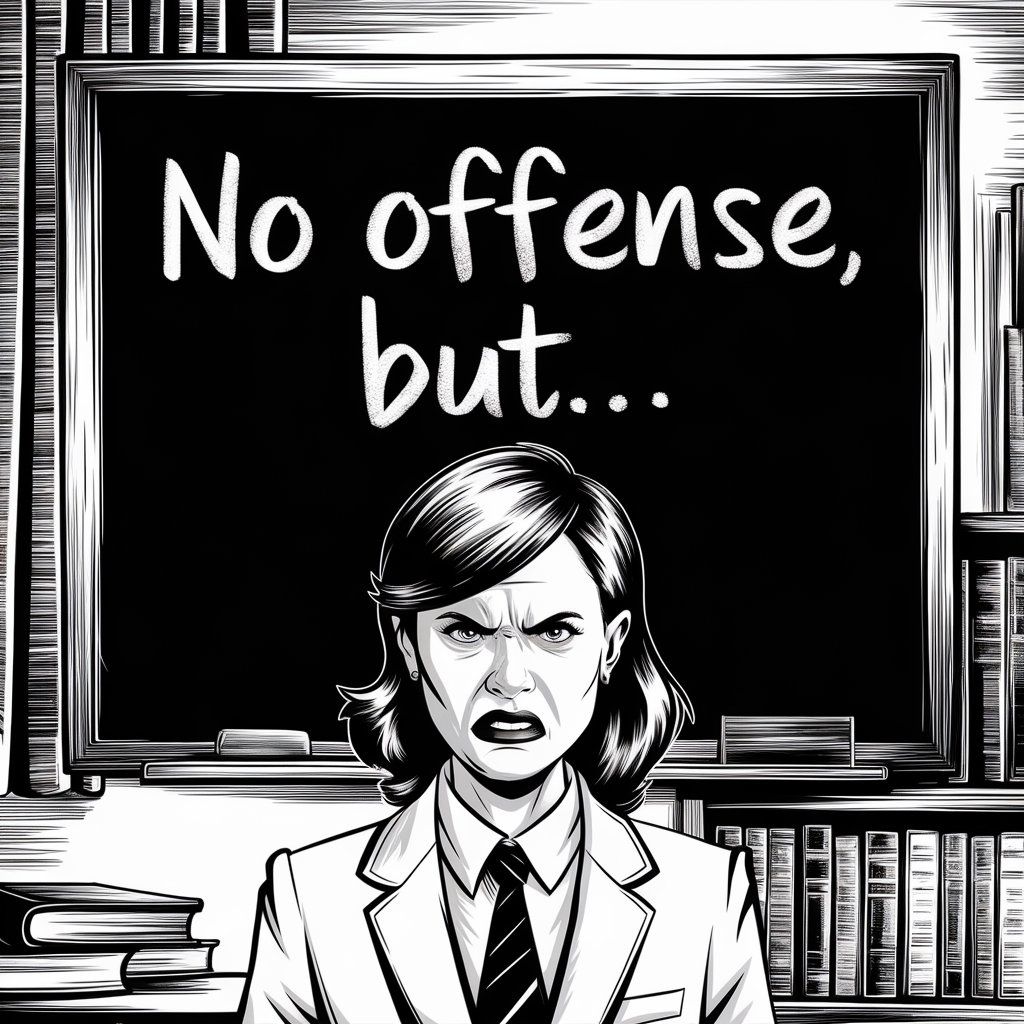We all have our go-to phrases, those little expressions that slip out almost automatically in conversation. But what if I told you that some of these everyday phrases do more harm than good? Whether you aim to make a good impression at work, maintain strong relationships, or sound more up-to-date, your chosen words can make all the difference.
In this article, we’re uncovering 11 common phrases you’ve probably used a hundred times—phrases that are not only outdated but could be sabotaging how others perceive you. Ready to find out if you’re guilty of any of these?
1. “To Whom It May Concern”
This phrase has been a staple in formal communication for decades, but today, it’s become a red flag for being impersonal and outdated. When you use “To Whom It May Concern,” you signal to the reader that you haven’t done your homework to find out who exactly you’re addressing, which can come across as lazy or indifferent. In an age where personalization is key, this phrase just doesn’t cut it anymore.
What to Say Instead: If you don’t know the recipient’s name, try to find it out with a quick search. If that’s not possible, address your message to a specific role or department or use a friendly, neutral greeting like “Dear Hiring Manager,” “Dear Customer Support Team,” or simply “Hello.” These alternatives feel more targeted and show that you’ve put thought into your communication.
2. “Please Be Advised”
“Please be advised” is a phrase that often appears in formal emails or letters, but it can come across as overly formal, bureaucratic, and even condescending. It’s a relic from a time when business communication was much more rigid and distant. Today, people prefer clarity and straightforwardness, and this phrase often feels like unnecessary filler.
What to Say Instead: Cut straight to the point. Instead of saying “Please be advised,” simply state the information directly. For example, instead of “Please be advised that your meeting has been rescheduled,” say “Your meeting has been rescheduled.” It’s clearer, more concise, and feels much more natural.
3. “At Your Earliest Convenience”
“At your earliest convenience” is a phrase that’s meant to be polite, but it often comes off as vague or even passive-aggressive, especially in professional settings. It can be misinterpreted as “whenever you get around to it,” which might not convey the urgency or importance of your request. This phrase can leave too much room for misunderstanding in a world where clear communication is key.
What to Say Instead: Be more specific with your timeline. If you need something done quickly, say “as soon as possible” or, better yet, give a specific deadline like “by Friday at 5 PM.” This not only clarifies your expectations but also helps the recipient manage their time effectively. If there’s no rush, simply say “when you have a moment,” which feels more genuine and flexible.
4. “Enclosed Please Find”
“Enclosed please find” is a phrase that harks back to the days of snail mail and formal business letters. It’s overly formal and feels stiff in today’s more casual, digital communication landscape. Using this phrase can make your emails or documents seem dated and less approachable.
What to Say Instead: Keep it simple and straightforward. Instead of “Enclosed please find,” say “I’ve attached” or “Please find attached.” For example, “I’ve attached the report for your review” is much clearer and more in tune with modern communication styles. It gets the message across without unnecessary formality.
5. “I Hope This Email Finds You Well”
This phrase has become so overused in email correspondence that it’s often seen as insincere or clichéd. While the intention is to express goodwill, it’s become a filler phrase that can come across as hollow, especially if there’s no personal connection with the recipient. In a world where people receive countless emails daily, standing out with a more engaging opening is crucial.
What to Say Instead: Start with something relevant or specific to the person you’re emailing. If you know them well, ask a personal question like, “How was your weekend?” or reference a previous conversation. If you’re emailing a colleague or someone you don’t know well, jump right into the purpose of your email with a line like, “I wanted to reach out about…” or “I’m following up on…”. This approach feels more genuine and gets to the point quickly.
6. “Per Our Conversation”
“Per our conversation” is another phrase that, while functional, tends to sound overly formal and robotic. It’s a staple of corporate jargon that can make your communication feel stiff and impersonal. In an age where people appreciate more natural and conversational language, this phrase can create unnecessary distance between you and the reader.
What to Say Instead: Use a more conversational tone to recap what was discussed. For example, you can say, “As we discussed,” or “Following up on our conversation.” These alternatives feel more personal and make your communication sound more like a continuation of a dialogue rather than a formal report. It helps maintain a connection while still providing clarity and context.
7. “With All Due Respect”
“With all due respect” is often used as a polite preface before delivering criticism or disagreement, but it frequently has the opposite effect. Instead of softening the blow, it can come across as passive-aggressive or insincere, signaling that something disrespectful or dismissive is about to follow. This phrase can put the recipient on the defensive and undermine the conversation’s tone.
What to Say Instead: Be direct yet tactful without the preamble. If you need to express a differing opinion or provide criticism, simply do so respectfully and constructively. For example, you might say, “I see it differently because…” or “I understand your point, but I believe…”. This approach gets to the heart of the matter without the potential for misinterpretation, focusing on the discussion rather than the phrasing.
8. “In the Meantime”
“In the meantime” is often used to indicate a temporary period before something else happens. While it’s not inherently negative, it can sound vague or leave the reader wondering about the exact timeline or what’s expected during this period. It’s a filler phrase that doesn’t add much value to the communication.
What to Say Instead: Be more specific about the timeline or what actions should be taken. For example, instead of saying “In the meantime, please review the document,” you could say, “While we wait for the final approval, please review the document by Thursday.” This gives a clear expectation and timeline, making your communication more effective and actionable.
9. “Think Outside the Box”
“Think outside the box” is a cliché that’s been overused in corporate and creative environments to the point where it’s lost its impact. While it encourages creativity, the phrase itself has become so commonplace that it no longer inspires the innovative thinking it’s meant to evoke. It can feel tired and unoriginal, which is ironic given its intended purpose.
What to Say Instead: Encourage creativity in a more specific or engaging way. For instance, you could say, “Let’s approach this from a different angle,” or “What’s a new perspective we haven’t considered?” These alternatives prompt creative thinking without relying on a worn-out phrase, making your request feel more dynamic and fresh.
10. “It Is What It Is”
“It is what it is” is a phrase often used to express resignation or acceptance of a situation, but it can come across as dismissive or even defeatist. It suggests that there’s no room for change or improvement, which can be demotivating, especially in professional or problem-solving contexts. It can also shut down further discussion, making others feel their concerns or ideas aren’t valued.
What to Say Instead: Encourage a more proactive approach by saying something like, “Let’s focus on what we can do,” or “How can we work with this?” These alternatives shift the conversation towards finding solutions or making the best of the situation, which is more empowering and constructive. They keep the door open for discussion and collaboration, fostering a more positive and forward-thinking atmosphere.
11. “No Offense, But…”
“No offense, but…” is a phrase that’s almost always followed by something that is, in fact, offensive or critical. It’s often used as a shield to soften a harsh comment, but instead, it highlights that what you’re about to say is likely to offend. This phrase can come off as disingenuous and is more likely to cause friction than to mitigate it.
What to Say Instead: If you need to offer criticism or disagree with someone, be direct and respectful without the preface. Start with a positive if possible, then deliver your critique in a constructive manner. For example, “I see where you’re coming from, but I think we could consider…” or “I appreciate your effort, but here’s another perspective.” This approach keeps the conversation respectful and avoids the negative impact that “No offense, but…” tends to have.
Language is powerful, and the words and phrases we use every day can shape how we’re perceived, both personally and professionally. By updating your vocabulary and ditching these outdated expressions, you’re not just avoiding potential pitfalls—you’re also ensuring that your communication is clear, engaging, and reflective of today’s more dynamic and inclusive world.
So, take a moment to rethink the phrases you rely on, and replace them with language that truly connects. After all, the right words can make all the difference.

Hey fellow Linguaholics! It’s me, Marcel. I am the proud owner of linguaholic.com. Languages have always been my passion and I have studied Linguistics, Computational Linguistics and Sinology at the University of Zurich. It is my utmost pleasure to share with all of you guys what I know about languages and linguistics in general.












